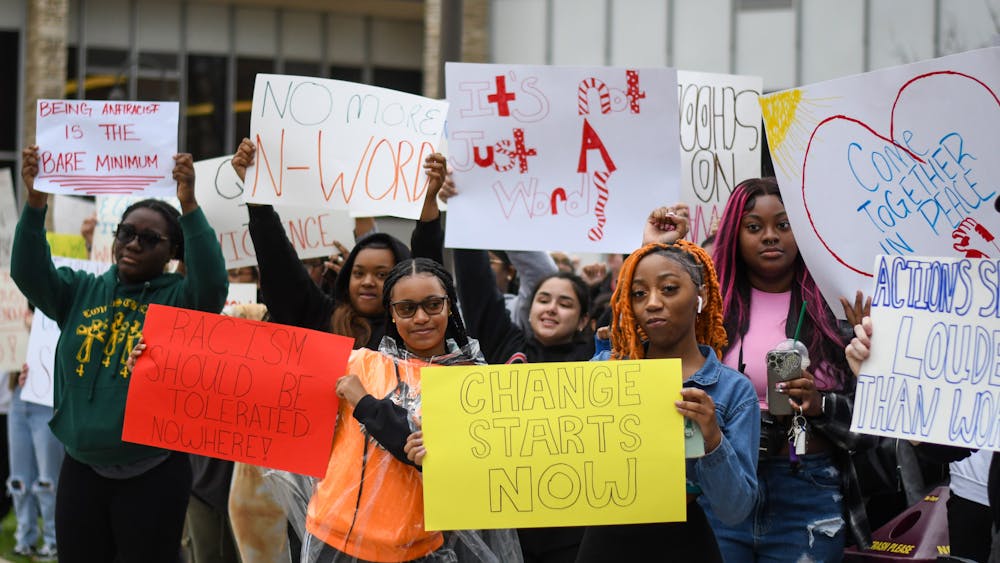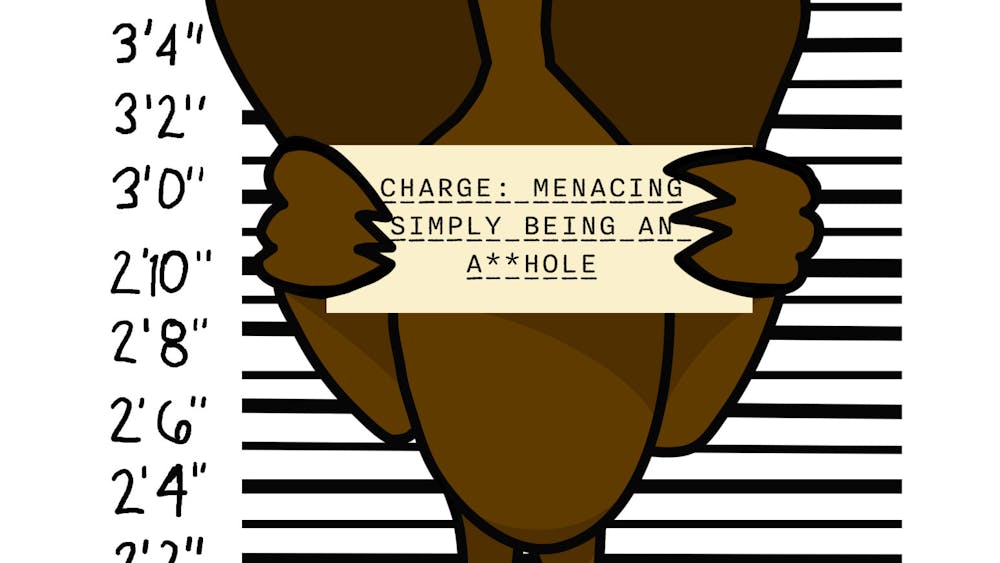Q&A: University Theatre director creates play to perform at CMU, festivals

Director of University Theatre Steve Berglund answers questions for a Q & A on April 4 in Moore Hall.
During his sabbatical in Fall 2016, Steve Berglund transformed his life experiences and perspective to art and authored his own theatrical performance.
Berglund, a theater professor, has committed 31 years to Central Michigan University and is known in the department for valuing and establishing strong connections with students and alumni.
Currently Berglund teaches courses and serves as the University Theatre director. Throughout his career at CMU, he has also held positions as the area coordinator for Theatre Interpretation and Dance, interim chairperson for the department and worked in the College of Communication and Fine Arts Dean’s office.
“Man” is a comedic play about a man’s journey to navigate the premise of manhood. It will perform at 7:30 p.m. April 6-8 at the Theatre-On-The-Side in Moore Hall. Admission is free, but seating is limited and will fill on a first-come-first-serve basis.
Berglund will be the lone featured performer in his one-man show. The performance was directed by Jody Price, another theater faculty member at CMU.
After Berglund’s performance on campus, he will take the play to the Indianapolis Fringe Festival in August to perform three times and will continue to perform five more times at the Chicago Fringe Festival in early September.
“Man” and was also selected to show in the United Solo Performance Festival, the largest one-person theater festival in the world. He will take the show to New York to perform on at on 42nd Street on September 20.
Central Michigan Life sat down with Berglund to talk about his inspiration and experiences writing the play.
CM Life: What is “Man” about?
Berglund: The basic premises of "Man" is that it’s (about) man who’s sharing stories and past experiences as a way to figure out if he’s leading society’s expectations of what it means to be a man. It’s a mostly humorous approach to the kinds of things men are expected to be or are expected to do. This man isn’t sure if he measures up and is confused by some of the expectations.
What was your inspiration when writing the play?
I was on sabbatical last semester. One of things I did during my sabbatical was go to the National Story Telling Festival in Tennessee and I listened to professional story-tellers. I’ve always been fascinated by the idea of storytelling. I wanted to figure out a way to use my own, personal stories as a way to fill in how this play functions. So, all the stories in this come from my personal experiences, but then I needed a structure. I started reading a lot about --- and some of them are so silly --- lists of what real man are, and I thought ‘well this is great,’ because here’s an expectation that I have personal stories about. It kind of fell together.
How does a one-man show differ from other performances?
It’s different in the sense that there’s only one actor. (Also) that it addresses the audience directly instead of (it) between two actors who pretend the audience isn’t there.
How is a one-man show more challenging?
It’s much more stressful on the actor. It takes a great deal of mental and physical energy. It doesn’t seem like it would be that hard but it takes a tremendous amount of mental energy to stay focused. Physically, strangely enough it’s hard. I’m not a young man anymore, so that’s an interesting challenge too.
What was the writing process like?
I don’t really consider myself a writer; I consider myself a storyteller. So, I would often tell my stories out loud then go back and write them down, and rewrite them in a way that seemed as natural as I could get it. In the process of rehearsing I’ve rewritten (parts of the play), informally, a lot of times. I’ve changed words, changed phrases, cut half-lines because, when I told it last time it felt right but now, in the context of rehearsal, I had to change it.
Have you written anything before?
I wrote a show about 5-6 years ago that was also based on personal stories. It was called "Digressions: Based on Events That May Have Been True.” It was about the idea that in the end, we are simply a collection of stories. That’s what people are. We tell stories that lead us to other stories, that lead us to other stories, and after a while you don’t know if the stories are true or not. I performed Digressions (at CMU) and I was invited to the story festival that used to run here. Then, I took it to the Orlando International Fringe festival. It was great fun.




